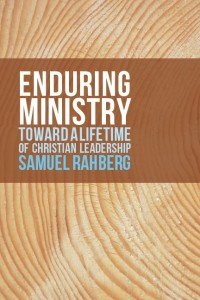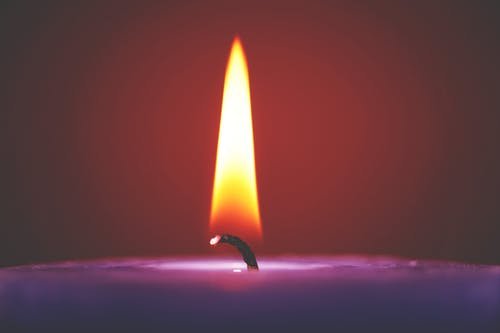The Awakening: What Is the Gift of Shadow?
This reflection continues an exploration of the unknown in our inner worlds, sometimes called the shadow. Part 1 took up the question “What Is Shadow?” while parts 2 and 3 follow the questions “What Do We Do with Shadow?” and “What Is the Gift of Shadow?”
The Summons: What Do We Do With Shadow?
This reflection continues an exploration of the unknown in our inner worlds, sometimes called the shadow. Part 1 took up the question “What Is Shadow?” while parts 2 and 3 follow the questions “What Do We Do with Shadow?” and “What Is the Gift of Shadow?”
The Unknown: What Is Shadow?
This reflection kicks off a three-part exploration of the unknown in our inner worlds, sometimes called the shadow. Part 1 takes up the question “What Is Shadow?” while parts 2 and 3 follow the questions “What Do We Do with Shadow?” and “What Is the Gift of Shadow?”
Poem: Ice Break
On the far edge of winter
a frozen lake quakes and groans
as a warm sunrise hints at Spring.
Enduring Ministry Reflection, Celebrating the Release
This past week I found myself right at home in Mark 6. The disciples are sent out two by two, preaching, casting out demons, and anointing the sick. After a time they return to Jesus and tell “him all that they had done and taught” (6:30, NRSV) Jesus replies, "Come away by yourselves to a deserted place all by yourselves and rest a while" (31). Sometimes that's exactly what we want to hear, the expectation we have as we climb into the boat with Jesus. Listen for what really happens: “Now many saw them going and recognized them, and they hurried there on foot from all the towns and arrived ahead of them” (33). The disciples did not get the deserted place they wanted. What the disciples do get is a boat ride with Jesus between crowds. This book and this evening is about the boat ride. What happens, what needs to happen when we're sent out, when we're serving, and when we're on the boat journeying with Christ on the way to the next crowd so that we get off the boat and continue serving like Jesus? “As he went ashore, he saw a great crowd; and he had compassion for them, because they were like sheep without a shepherd; and he began to teach them many things” (34). Whatever happened on that boat, Jesus sets foot ashore and demonstrates an enduring ministry.
God Gives the Fire: Thomas Merton on Promethean Theology
I recently finished reading Thomas Merton's The New Man (New York: Farrar, Straus and Giroux, 1961) and found his chapter on Promethean theology (p. 21-48) too intriguing to keep to myself. A Promethean theology, in Merton's view, ultimately presumes that freedom must be won or taken. Merton uncovers this faulty notion by examining an ancient Greek myth alongside the struggle of modern Christians to let the radical and complete grace of God wash out any subtle attempt to win favor and worth. The fire of our identity and belonging is pure gift, Merton argues convincingly. Rather than attempt to relay his masterful chapter, I offer here a brief introduction to the Promethean Myth and some highlights to guide your own reflection. Linger with them until you reach the last piece, The Soul Is Like Wax, which is a beautiful and related image also written by Merton.
Boundaries: A Matter of Freedom and Life
I find it easier to practice boundaries within the context of spiritual direction than I do the flow of life and responsibilities outside of those relationships. This became clear to me after re-reading Boundaries by psychologists Henry Cloud and John Townsend [Zondervan, 1992]. Nearly twenty years after first reading this best seller, I still surprise myself some days by being clear and relaxed as a spiritual director, only to lose my sense of groundedness moments later in another setting. What can we learn from spiritual direction relationships that helps us keep practicing boundaries in others?
I Smell Gas
In this particular situation, and in contrast to other interactions I have had in ministry settings, I was able to quickly and clearly hold my ground. I said, "I do smell gas, in fact, and I need help finding a solution." This refreshing moment of clarity reminded me that it is not always so easy to hold the ground of true self. In the flow of life, we sometimes catch ourselves doubting what we smell. We might initially attempt to ignore it or succeed in explaining away our sensations for a time. When the smell still persists, however, we begin to second guess ourselves, occasionally surrendering our perspectives too quickly because someone has pressed against our convictions. To underestimate or fail to exercise our perspectives faithfully is to drift away from the authentic, Christ-centered self.
How Do Our Limits Set Us Free?
We all have limits. It is an undeniable truth for every member of humankind. Whether we understand them to be the end of our capacities or the boundaries of our identities, we know the discomfort that accompanies the attempt to exceed them. Were discomfort the only outcome, we would simply discount them as inconveniences and pretend to avoid them. That would, however, dismiss the potential appreciation for limits that Benedict has been encouraging since the sixth century. In Ch. 4 of the Rule he urges the reader, “Day by day remind yourself that you are going to die”












